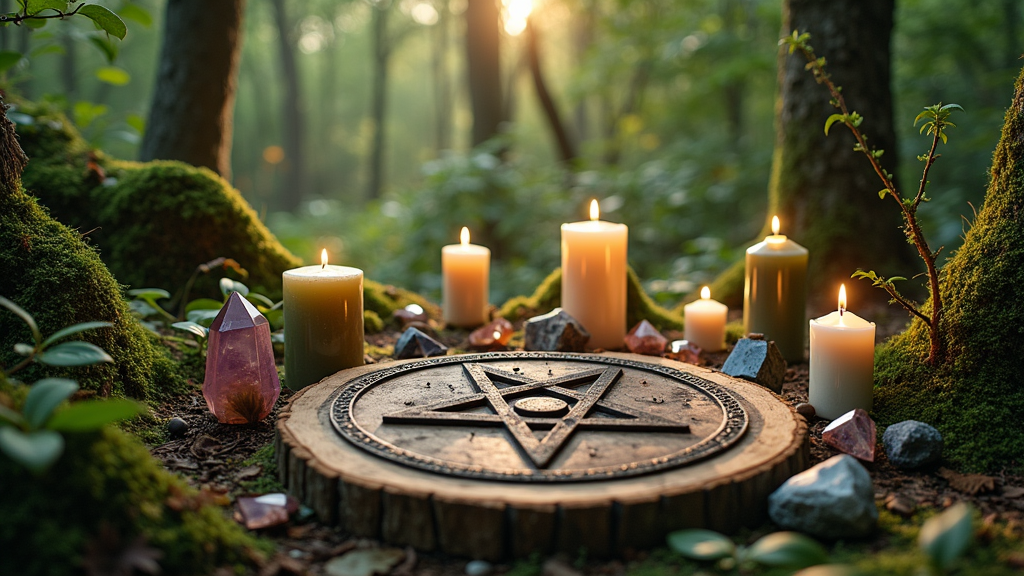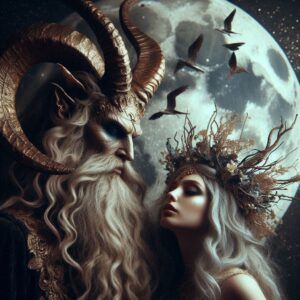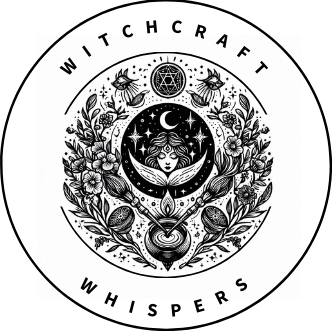Paganism has become a bit of a buzzword these days, but a closer look reveals it covers a wide range of beliefs and paths. Wicca is probably the most well known, but it’s just one branch of a much bigger tree. For anyone curious about spirituality outside the mainstream, it’s helpful to understand how Wicca compares to other modern Pagan traditions. I’m here to break down the core differences and similarities so you can get a clearer picture of what makes Wicca unique, and how it connects to other Pagan paths.

What Makes Wicca Unique?
Modern Wicca originated in the mid-20th century and has grown into a movement with many offshoots. I’ve noticed that if you mention you’re Pagan, most folks assume you’re Wiccan, but there’s much more to it. Wicca is usually duotheistic, meaning two main gods, and honors both a Goddess and a God. Practitioners tend to follow an eight festival Wheel of the Year, work with ritual tools, and focus on spells and ethical guidelines like the “Wiccan Rede.”
Wicca has a strong structure to its rituals, and people can either work alone (solitary) or in groups called covens. Traditions like Gardnerian, Alexandrian, and Dianic Wicca fall under the broader Wiccan umbrella, but most Wiccans value personal experience and often adapt the basics to fit their own needs and beliefs.
Other Pagan Paths You’ll Find Today
The Pagan world is truly diverse. Some key traditions I see mentioned a lot are Druidry, Heathenry, Hellenic Reconstructionism, and Eclectic Paganism, each with its own focus and set of practices.
- Druidry: Focuses on Celtic gods, nature reverence, and poetic creativity. Rituals often include tree symbolism and seasonal festivals, but not necessarily magic like spellwork.
- Heathenry (or Asatrú): Reconstructs Norse and Germanic pre-Christian practices, working with deities like Odin, Thor, or Freyja. Rituals tend to be more formal; ancestor veneration is also a big part. FYI, I have stent a lot of time in this sect of Paganism (FYI, Asatru call themselves heathens and take offense to being called pagans), though that is not where my current spiritual beliefs are at.
- Reconstructionist Traditions: Try to revive the beliefs and rituals of ancient cultures as accurately as possible. Hellenic Pagans look to Greece, Kemetic Pagans to Egypt, and so on. There’s a strong emphasis on research and historical sources. Asatru can also be lumped in with this group as Asatru is a reconstruction of the Norse tradition.
- Eclectic Paganism: A mix and match approach, where practitioners pick what resonates from different traditions. There’s a lot of freedom here, but generally less focus on any single set of gods or rituals.
Adding a little more detail for those curious: Some groups, such as the Celtic Polytheists, work to reconstruct the religious life of the Celtic peoples. Meanwhile, Roman Reconstructionists aim to revive the old practices of Rome, maintaining their own seasonal festivals and gods. The variety across all these groups is remarkable, reflecting the rich tapestry of history they seek to honor or adapt.
Similarities Connecting Wicca and Other Pagan Traditions
Across almost all Pagan groups, certain themes pop up consistently. Nature is a major focus, with most traditions marking the seasons and honoring the land. Rituals, whether simple or elaborate, are central, and there’s a significant emphasis on personal growth and self responsibility. Community is also valued, whether you’re working alone or with others. Families sometimes even celebrate together, blending old and new customs.
Fundamentally, all Pagan paths are polytheistic or nonmonotheistic in some way. Deities might be viewed as real beings, archetypes, or even parts of nature itself. Respect for diversity is the one constant. There’s no “one way” that’s right for everyone, making room for creativity and individual paths.
Key Differences: Wicca vs. Other Modern Pagan Traditions
Even with these shared values, there are some clear differences. Here’s a breakdown in straightforward terms:
- Deities: Wiccans honor a Goddess and a God, usually seen as equal, while other Pagan paths may be devoted to whole pantheons, like the Norse gods in Heathenry or the Greek gods for Hellenic Pagans. Others may not focus on deities at all, such as some forms of Druidry.
- Ritual Structure: Wiccan rites frequently involve casting circles, calling quarters, and using set tools, providing a recognizable pattern. Traditions like Heathenry might use blóts (The religious celebration at a gathering), while Druidry can feature open air ceremonies, and Reconstructionists follow historical rituals as much as possible.
- Ethics: The “Wiccan Rede” (“An it harm none, do what ye will”) serves as a practical guideline in Wicca, encouraging personal responsibility. Other traditions don’t always have a single equivalent rule. Heathens (Asatru) talk about a code of honor or virtues (the Nine Noble Virtues), while Reconstructionists look to ancient texts for ethical inspiration.
- Magic: Wiccans typically practice magic as part of their path, but not all other Pagans do. Some Druid groups are nonmagical, and Reconstructionist paths often avoid modern witchcraft to favor traditional rites.
- Initiation: Some Wiccan paths ask for formal initiation for membership. In contrast, many Pagan traditions are open, with no single method or authority deciding who counts as an adherent.
Wicca’s Modern Appeal
Wicca attracts a lot of people because it’s flexible and offers a mix of spirituality, ritual, and self empowerment. For those wanting to mark the seasons, cast spells, or explore spirituality at their own pace, it feels inviting. The focus on dual divinity and gender balance in Wicca also resonates with folks looking for something outside of patriarchal traditions.
Its fast growth since the 1950s is partly due to its adaptability for solo practitioners. Books, online communities, and social media all smooth the way for accessing materials and support, even if you don’t have a local group. Plus, the pop culture presence of Wicca has sparked curiosity and made resources more available than ever.
Challenges and Things to Consider
 Sorting through all these traditions can feel overwhelming. Here are a few points to mull over if you’re trying to find the right path for you:
Sorting through all these traditions can feel overwhelming. Here are a few points to mull over if you’re trying to find the right path for you:
- Cultural Authenticity: Reconstructionist groups may get intense about doing things as ancient people did, which takes lots of research and attention. Wicca and Eclectic paths allow more personal leeway, but some Pagans see them as less authentic or too generalized.
- Community: Some traditions value large gatherings and teamwork, while others lean more toward solo work. Think about whether you want structured meetings or prefer going at your own pace. Some groups are great for families, while others may cater more to individuals.
- Magic & Belief: Not every path features spellwork, and belief in the gods is often personal. Druidry and Heathenry both have communities that focus more on philosophy and culture than spirituality or magic itself.
- Source Materials: Wicca draws ideas from various sources, including folklore and ceremonial practices, while Reconstructionist paths put their energy into historical accuracy. Your preferred style can help you pick which resources suit you.
If you’re also interested in environmental activism, you might notice many Pagans are active in ecofriendly causes, seeing the Earth as sacred and worth protecting. This is something unique and important for many who come to Paganism as a spiritual home.
Cultural Appropriation
One topic people bring up regularly is how Pagan paths pick elements from different cultures. Some Reconstructionists encourage people to stick to the cultures they’re personally connected with. Wicca can mix symbols and practices from around the world, prompting debate about what’s respectful. Doing research and being mindful helps you practice in a way that feels right to you and appropriate to the wider community.
Legality and Acceptance
In most places, Wicca and Pagan traditions are legal, but public acceptance differs depending on where you live. Some keep their spirituality low-key for privacy, while others share openly. Knowing the local climate can make it easier to find connections or resources without unwanted attention.
Real Life Experiences from Practitioners
I’ve spoken to people in both Wicca and other Pagan traditions, and they share that the path you pick is a really personal fit. One friend who identifies as Heathen feels a strong connection to Norse lore and ancestors, while another sticks to Wiccan rituals because she loves the flexibility and sense of empowerment. Someone else might start in Wicca and later move to Druidry, or shift to a more academically oriented path—there’s truly no wrong way as long as it works for you.
Books and online groups provide a good starting point, but face to face meetings, if possible, give you the real sense of what a tradition feels like day to day. Workshops, Pagan festivals, or even online video calls can help deepen your understanding and help you spot which path fits best.
Common Questions: Wicca and Other Pagan Paths
Here are a few things people new to the Pagan world tend to ask:
Is Wicca witchcraft?
Answer: Wicca generally includes witchcraft, but not all forms of witchcraft are Wiccan. Wicca is a religion that typically uses magical practices, but many people practice witchcraft outside of Wicca as well.
Can I mix and match Pagan traditions?
Answer: Yes, that’s the basis of Eclectic Paganism. Many people blend elements that resonate with them. Others go deep into a single tradition for focus or depth.
Do you have to believe in literal gods?
Answer: That’s totally up to you. Some see gods as symbols or archetypes, while others view them as real spiritual beings. There’s no one required view, and most groups are welcoming of different perspectives.
Which is easier for beginners: Wicca or another tradition?
Answer: Wicca is often viewed as more approachable since there are a lot of books and resources for starters. Reconstructionist traditions tend to demand more research and background work up front.
Wrapping Up
Wicca and other Pagan traditions offer a wide array of spiritual experiences. There’s structure if you want it, and freedom to improvise if that’s your preference. If you’re drawn to this kind of spiritual practice, take your time to read, talk to people, and test things out. The most rewarding path is the one that fits you best.
Exploring modern Paganism is a chance to learn about yourself, the natural world, and a whole range of human cultures and beliefs. Whether you stick with Wicca or stumble upon another path that calls to you, there’s a lot to learn and enjoy along the way.
